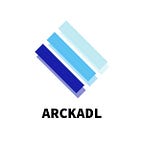Understanding the Implications of the Cloud Federation on Computing
“A new approach to the cloud — one based on a federated model — will be increasingly important for cloud providers and users alike.” — DataCentre Knowledge
Our global ecosystem continues to transition towards an age defined by managing sheer amounts of data. The solution, in part, has been a transition to Cloud-based technology. However, there still exists concerns about costs and security. As a result, the Cloud Federation continues to gain traction for its ability to be power-efficient, cost-effective, and adapt to constant changes in the number of cloud resources and services required securely through innovative connectivity.
Businesses continue to look to the Cloud Federation as being the unionization of software, infrastructure and platform services from different networks that can be accessed by a client through the internet. The federation clearly outlines what each member is offering and enforces rules that standardize members’ commitment to overall performance. The federation of cloud resources is managed by network gateways that connect public clouds, private clouds and community clouds to create a hybrid cloud computing environment.
Benefits of a Cloud Federation
So why should businesses consider the cloud federation?
First, federation performance is determined by elastic resource allocation. In layman’s terms, this means when a participant has idle cloud services, other businesses can use the extra services when they are at capacity. Companies that do not utilize these services can earn revenue by making these resources available in a cloud resource pool. This allocation of services results in a transparent operation between different clouds, operating in the most appropriate infrastructure environments with an agreed-upon service level.
Second, enterprises also can distribute workloads around the globe. With many resources being utilized, businesses can expand their geographical footprint and have various resources to draw from when experiencing a sudden spike in demand. While a Federation can leverage resources that are close to a resource for improved efficiency, in events of a local outage, federation participants have a greater variety of cloud resources to draw upon.
Limitations of Cloud Federation
For different clouds to work together, brokering connectivity between a client and external cloud provider needs to exist. Connectivity proves to be a challenge since different clouds typically leverage other techniques to address networks. To resolve this limitation, cloud federation architecture ensures interface standards, and a broker exists to translate between interfaces. Each provider must then permit clients to specify an addressing scheme for each offered server. Customers can then gain access to these different cloud services without reconfiguring their system when other providers’ services are needed.
Leveraging the Cloud Federation for Trusted Data Management
When accompanied by other innovations, the federation is a crucial driver in creating a trusted ecosystem for data management. Used effectively, the federation provides the connectivity apparatus for sharing services, supporting cooperation, and ensuring software and computer systems can exchange and make use of information.
There is believed to be untapped potential in the way resources and applications are handled, developed and utilized as a concept. Many have begun to view this innovation as an opportunity to provide computing services in the same way that utilities are provided (in pay by what you use manner). These concepts continue to evolve and shape how the cloud is consumed.
Arckadl’s Federation is a connectivity framework that supports the sharing of services between multiple Blockchain Session Controllers™. The Federation supports enterprise data management from the cloud, and includes provisions that determine who can communicate with whom. More information can be found on Arckadl.com.
